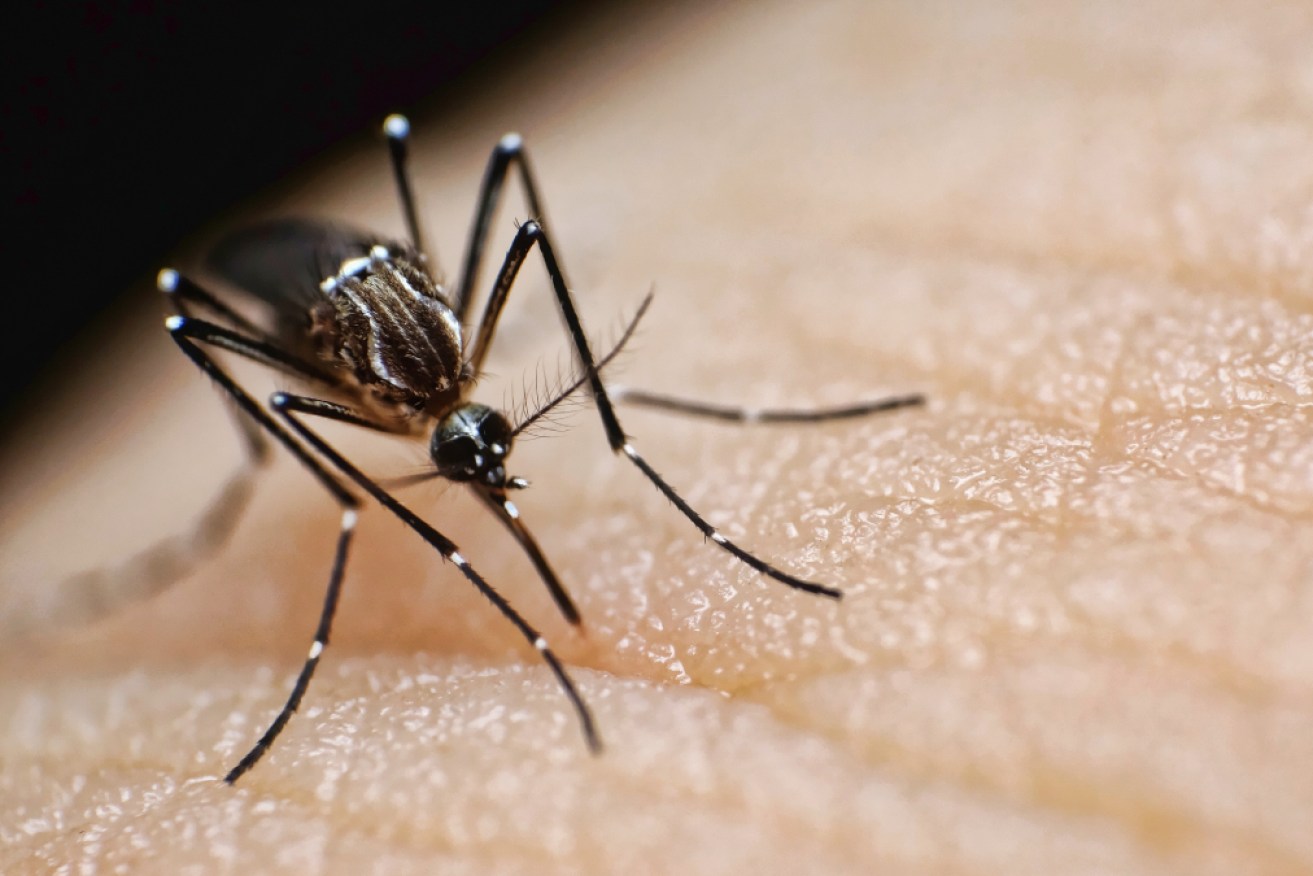Detections of mosquito-borne viruses on the rise


The risk of human cases in the coming weeks is high, authorities say. Photo: Getty
As the summer heat sets in across the nation, so does the risk of contracting potentially fatal viruses transmitted by mosquitoes.
With Murray Valley encephalitis (MVE) virus, West Nile/Kunjin virus and Japanese encephalitis (JE) detected in mosquito populations across multiple states, authorities say it’s essential for people to take steps to protect themselves and their loved ones.
MVE and JE viruses can cause brain inflammation, leading to symptoms such as fever, headache, drowsiness and confusion. In rare cases, they can lead to permanent brain damage or death.
“Only a small proportion of people infected with the virus will experience symptoms, which include fever, headache, nausea, vomiting, loss of appetite, diarrhoea and muscle aches,” Health Protection NSW executive director Richard Broome said.
“Among those who get a severe infection, some may die or have life-long neurological complications.”
West Nile virus infection – including Kunjin virus – is a disease that can cause mild flu-like symptoms. In rare cases, the infection can lead to severe complications such as meningitis and encephalitis.
MVE has recently been detected in mosquitos in the north-west Victorian city of Mildura and in the far west of New South Wales.
SA Health found mosquitoes carrying the viruses in the Mallee region, west of Adelaide last week.
There have been multiple cases of JE detected in recent months following the floods.
The prevalence of MVE virus and West Nile/Kunjin virus in mosquito populations means the risk of human cases in the coming weeks is high, authorities say.
On Saturday, Victorian health authorities said a “high number” of detections from across northern Victoria were in the Mildura area.
Tweet from @VicGovDH
“These results mean that the MVE virus is increasing in the mosquito population and indicate a significant risk to people in these areas, particularly Mildura,” acting chief health officer at the Victorian Department of Health, Clare Looker, said in a statement.
“Residents and people visiting Mildura are strongly advised to take measures to reduce their risk of mosquito bites.”
Deputy chief health officer Deborah Friedman told the ABC the detections had been increasing “week on week”, with “multiple detections coming in thick and fast”.
She said Mildura faced a “really concentrated area of risk” and as human cases began to emerge it was important the community was prepared.
“Mosquito bite protection shouldn’t just be something that people consider, it has to be something that everybody undertakes to protect themselves,” she said.
Protection
Experts say to protect yourself from JE and MVE, it’s important to take precautions against mosquito bites.
This includes using insect repellent, wearing long-sleeved clothing and staying indoors during peak mosquito hours (dawn and dusk). It’s also important to eliminate standing water around your home, as this is where mosquitoes breed.
Vaccinations are available for Japanese encephalitis but not for the other infections.
More information about mosquito-borne viruses can be found on the Department of Health and Aged Care website and the NSW Health website.
Another important step in protecting yourself is to stay informed. Keep an eye out for updates from public health officials and follow their recommendations.
State health departments often publish information about outbreaks on their websites and across their social media channels.
If there’s an outbreak in your area, pay attention to any quarantine or travel restrictions that may be in place.
According to the most recent government data, some 45 people have contracted Japanese encephalitis in Australia since January 2021.
They include 35 definitive cases and 10 probable cases in all states and territories except Tasmania and WA.
-with AAP








